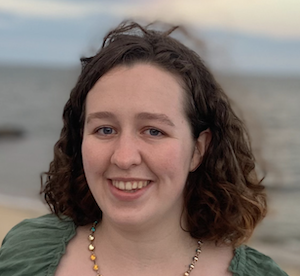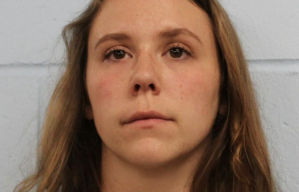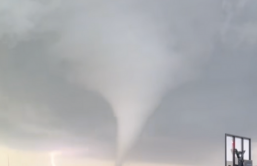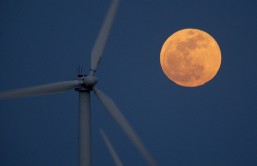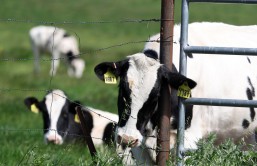
(Photo : Michael M. Santiago/Getty Images)
NYPD stands guard outside of Columbia University on April 24, 2024 in New York City. School administrators and pro-Palestinian, student protesters made progress on negations after the school set a midnight deadline for students to disband the encampment. The students agreed to remove a significant number of the tents that have been erected on the lawn, and ensured that non-students would leave, and bar discriminatory or harassing language among the protesters.
Columbia University threatened to call the National Guard and the New York Police Department on student protestors, if they did not leave their encampments on the university grounds, Columbia Students for Justice in Palestine (CUAD) alleged in a midnight post to social media.
While the university does not have the ability to direct the National Guard to come to Columbia and interact with students, they are able to request their presence on campus.
The students reportedly reached a tentative agreement with the administration by 3 a.m., after missing an initial university deadline to remove their tents. The university announced that students agreed to remove some of their tents, prohibit discriminatory language and remove any non-students from their encampment. "In light of this constructive dialogue, the university will continue conversations for the next 48 hours," Columbia said.
More than a hundred Columbia and Barnard students, including Representative Ilhan Omar's daughter, were arrested last week at the behest of university President Minouche Shafik.
After the university suspended the detained protestors, more than a hundred faculty members participated in a walk-out. Members of the Columbia Chapter of the American Association of University Professors are expected to move to censure Shafik, in response to her asking the New York Police Department to arrest the students.
Activists involved in the protests criticized the university for potentially endangering the student body through what they described as an "escalation of violence." CUAD also drew comparisons to the 1970 Kent State massacre - in which four people were shot and killed by the Ohio National Guard, during an anti-Vietnam War protest.
"I want the university to understand who is at risk here," Sofia Ong'ele, a member of CUAD, said in a press release. "The lawn is made up of a diverse coalition of predominantly Black, brown and Jewish students at Columbia who are at serious risk of police violence."
The internal politics of the encampments have been subject to intense scrutiny. Many Jewish students have participated in the pro-Palestinian activism - with dozens of protestors holding Passover Seders inside the encampments. Others, however, allege that the protests have led to a surge of campus antisemitism.
Columbia Professor John McWhorter was among those with university affiliations who were critical of the protests - writing an op-ed in the New York Times entitled "I'm a Columbia Professor. The Protests on My Campus Are Not Justice."
"I understand that the protesters and their fellow travelers feel that all of this is the proper response, social justice on the march," McWhorter wrote.
"However, the issues are complex, in ways that this uncompromising brand of power-battling is ill suited to address. Legitimate questions remain about the definition of genocide, about the extent of a nation's right to defend itself and about the justice of partition."
McWhorter criticized the protests on several grounds - including the manner in which it disrupted his classes. Student protestors, however, have stated that the purpose of their protest is to disrupt in an effort to call attention to Gaza.
"The University claims they want to return to 'business as usual,'' the CUAD press release said. "As though the murder of over 30,000 Palestinians - the majority of whom are women and children - and the systematic destruction of every university in Gaza can be construed as 'business as usual.'"
